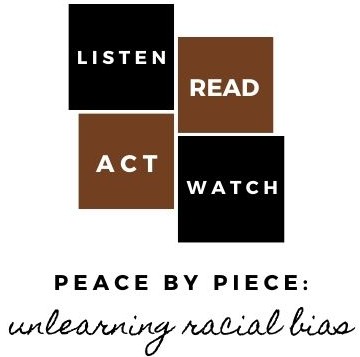This post is part of a year-long series. If my work is helpful for you, consider a contribution through Venmo to support this crucial work of unlearning racial bias.
There comes a moment in Netflix’s Jingle Jangle when Journey, our cute, curious, precocious young heroine, sings a soliloquy of sorts. Journey is doggedly determined not to be discouraged by her curmudgeonly grandfather Jeronicus. Instead, she insists that he can reawaken his inner inventive genius, and that she, who has inherited his creative acumen, can forge a mutually nurturing relationship with him where previously there has been none. Journey trusts that she can help Grandpa J, as she calls him, rebuild this life and reputation as a fabulous toymaker.

Evening has just fallen, and Journey is looking dreamily out the front window of her Grandpa J’s storefont and home. Journey seems to ruminate on the challenge facing her: that she’s sought out her grandfather in order to deepen the connection she feels to him through their shared sense of wonder and curiosity. But despite Journey’s infectious sense of awe and wonder, and even despite her ability to see what Jeronicus himself no longer can, her beloved Grandpa J remains unmoved, having been emotionally distant and self-isolated for so long since grieving the death of his young wife, that he no longer dares to try to create what he once could.
Journey, nevertheless, persists.
She sings to herself and to us of all the possibilities she can see that no one else can. Of the dreams she holds onto for herself. Of the glory that lies in her own ability to believe she can rise above the obstacles in front of her by tapping into her own uniqueness and strength.
As a person with a name that’s difficult for some people to pronounce, I’ve had to insist on more than one occasion that a person who is new to my life make the effort to learn my name’s pronunciation rather than shortening it to suit their own preference not to try. So I can’t help but love Jeronicus Jangle’s name: a delightfully melodious mouthful of alliterative syllables. Jeronicus protests quietly throughout the movie at others’ shortening his name to “J” or “Jerry.” I noticed and appreciated that Jeronicus was named intentionally by his creator, all the more so since the movie is an instant classic that will soon expand its reach, as it is being adapted for the stage as well.
When I began watching Jingle Jangle a few days before Thanksgiving this year, I was aware only that it was a Christmas movie with black people in it. But shortly after the movie began its first musical number, I began to discover countless more reasons to love it. Jingle Jangle is grand, vibrant, soulful, and universally relatable – and at its center resides a deeply connected, if briefly estranged, black family. It possesses a fresh, imaginative plot; gorgeous, thoughtful costuming and styling; an upbeat soundtrack reminiscent of groovy, nostalgic R&B tunes; and not least of all stars a beautiful young black girl who loves inventions, employs math as her superpower to troubleshoot inventions, fiercely loves her family, and becomes the glue that reunites a father who had been estranged from his daughter.
For me, Jingle Jangle proves what’s possible when talented, experienced black creatives are granted the time, budget, and resources they need to bring their imaginings to life: we get the representation we long to see.

When you watch Jingle Jangle, I hope you will move a step beyond passively taking in all the joy and beauty it offers to ask yourself when you last saw such lovingly crafted black characters on screen, how many heartwarming holiday movies uplift a wholesome image of a black family, and what it means for girls to see themselves represented as talented and determined and curious and bold.
I hope you’ll enjoy the movie, just as I did, and that you’ll keep coming back to this space so we can continue exploring all the possibilities that arise when we work to unlearn racial bias and cultivate peace in our communities, one piece at a time.

